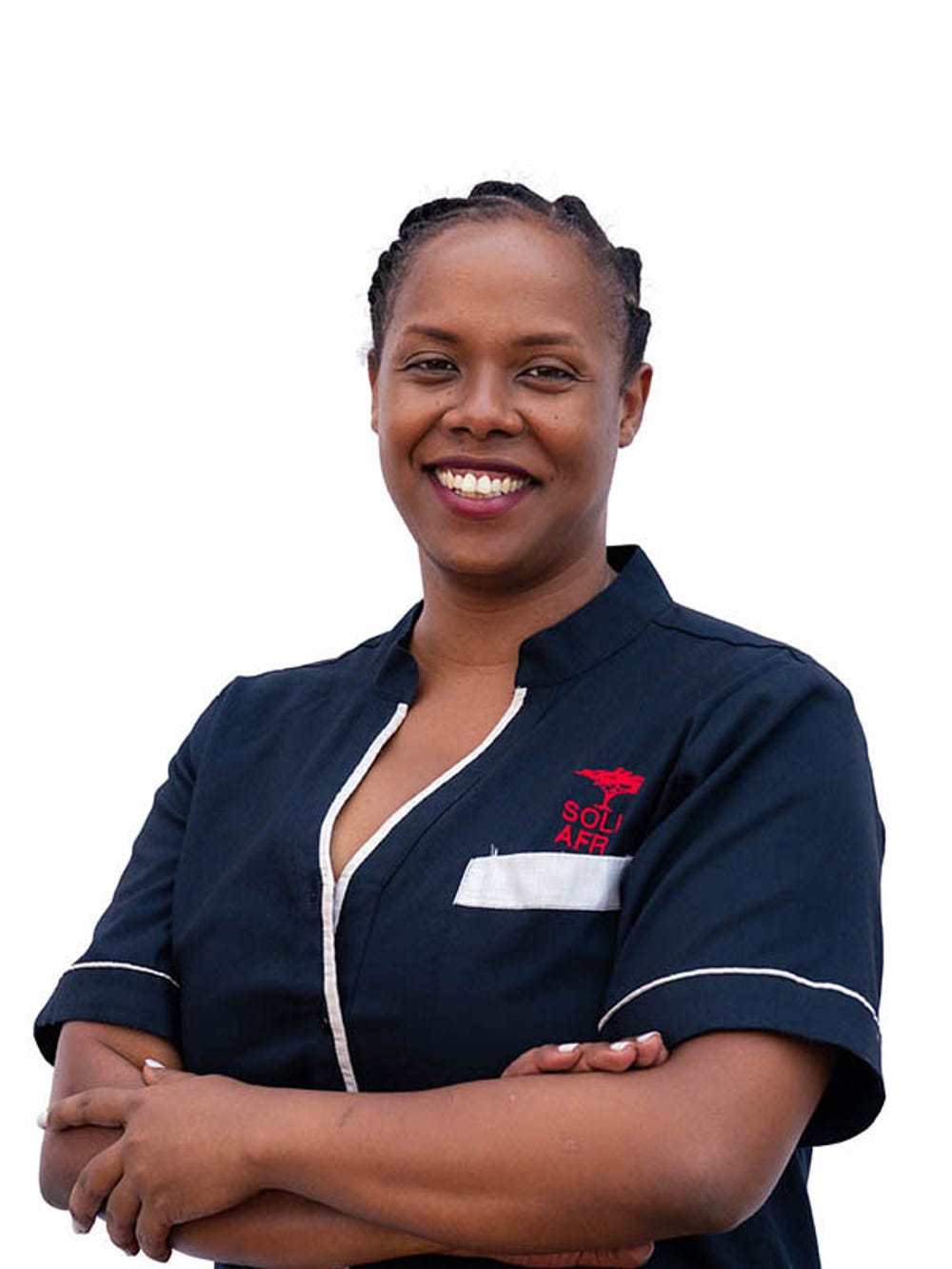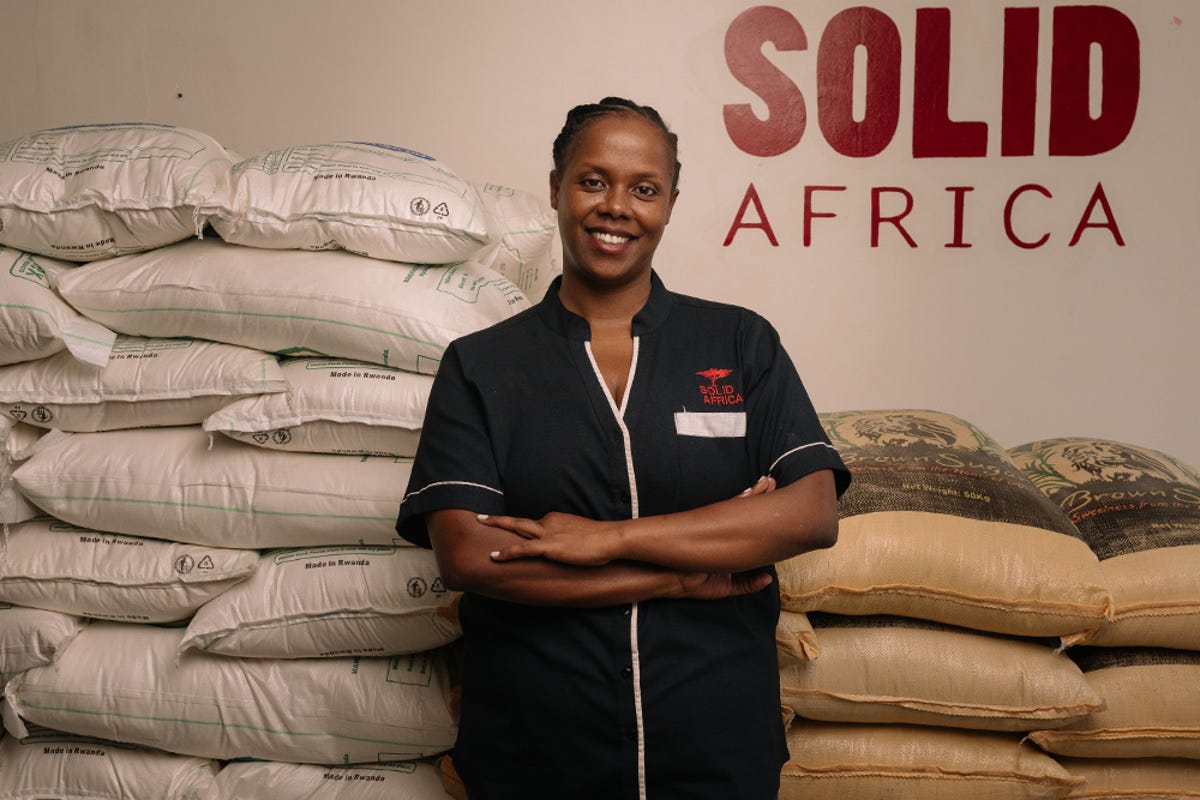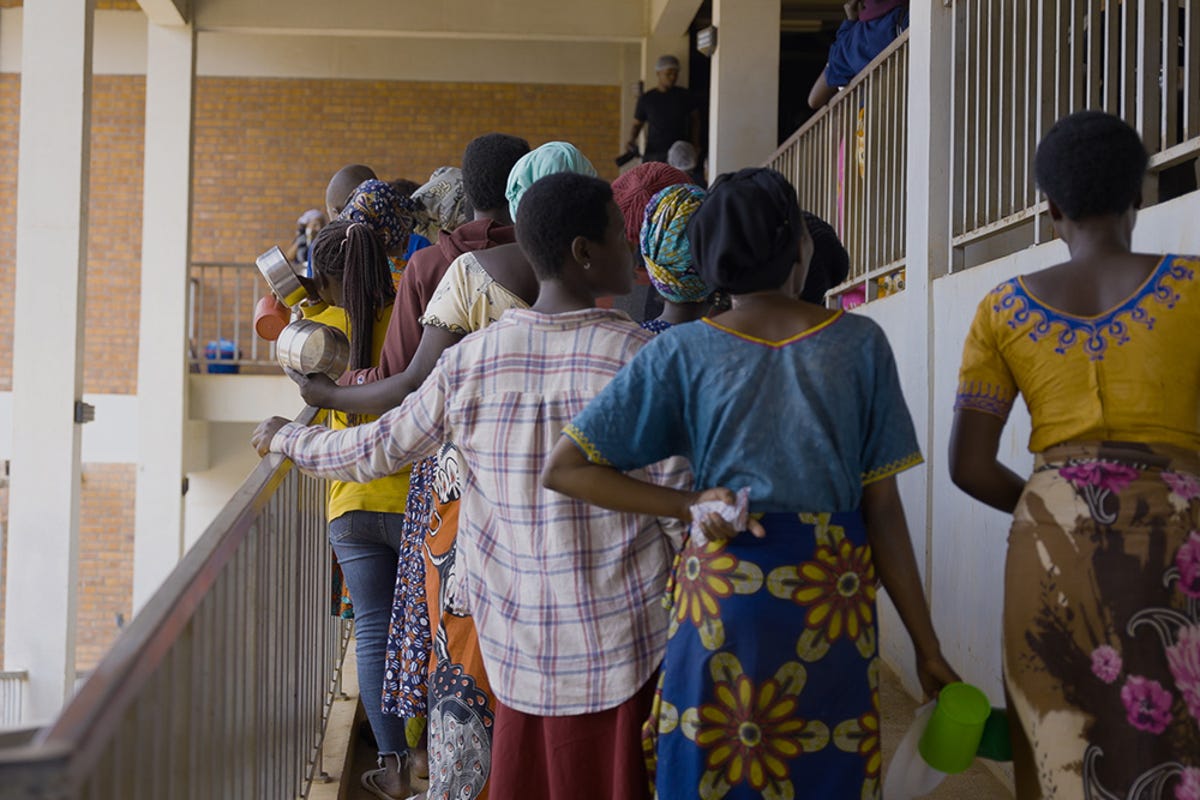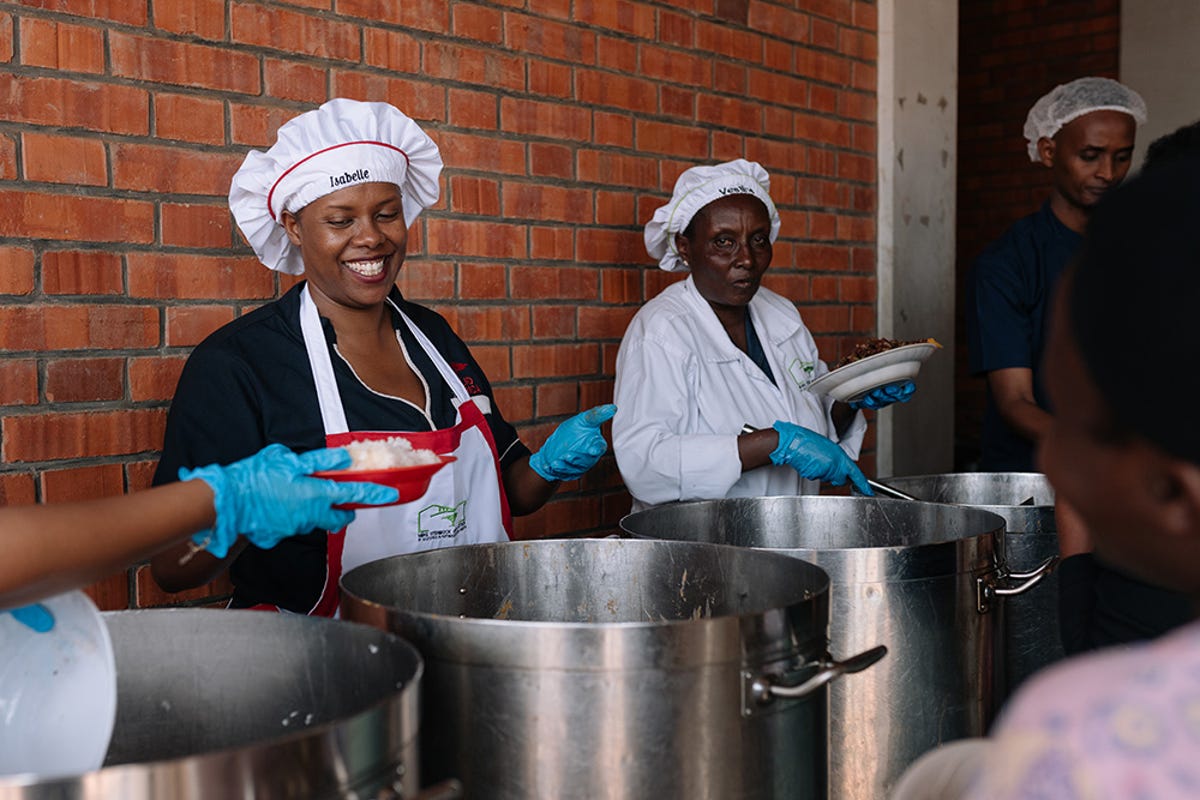Fellow Portrait
Isabelle Kamariza
Solid'Africa

Solid'Africa provides hospital patients with nutritious meals at an affordable price to solve the issue of food availability in public hospitals.
Francophone Sub-Saharan Africa
Rwanda
Fellow
2024
Updated March 2024
A hospital stay can mean going hungry for Rwandans below the poverty line
Community-based health insurance in Rwanda covers 100 percent of vulnerable citizens but doesn’t include food during public hospital stays. So the nearly 30 percent of Rwandans who earn less than $US2 a day are unable to afford meals if they get sick, further endangering their health.
“If you live far from the hospital, if you are already struggling to eat at home, then food becomes inaccessible,” says Solid’Africa Founder Isabelle Kamariza. Many hospitals have restaurants, but meal prices range from $0.80 to $2, making affordability difficult for people living under the poverty line.
What drives me is the patient. When I see somebody getting better because of a meal it reminds me that I'm working for the patient. I tell my staff: you're not working for me or for the board. You are working for each patient.

Solid’Africa addresses inadequate nutrition with direct monetary support to hospitals
Isabelle encountered food insecurity while studying in Belgium. Moved by encounters with hungry people in the streets, she began distributing sandwiches at a cost of less than US$1 a day each. When she returned to Rwanda, she founded Solid’Africa to address inadequate nutrition in hospitals.
“My experience in Belgium made it easy to understand that I didn't need millions to start. I just needed people to believe in the idea,” Isabelle says. “When we started, we called ourselves a movement of young people. Nobody had a lot of money but we hustled every step of the way to raise money to feed people.”
Solid’Africa’s industrial kitchen sets it apart because of its efficiency and resulting ability to produce nutritious meals at scale. The company cultivates 84 percent of the fresh food it provides with its farm-to-fork approach, growing foods like rice, vegetables, and fruit.
“The fact that we control the value chain and the supply chain is a big plus when markets fluctuate,” Isabelle says. “We dispatch the food either in hospitals for patients or for our clients, and use the return waste to create our own fertilizer with 70 percent efficiency. Our business and nonprofit sides are intertwined, with the business side owned 100 percent by the non-profit.”
In January 2024, next to its industrial kitchen, the company will start building the first-of-its-kind Institute of Culinary Arts and Nutrition to put nutrition knowledge in the hands of the people who are cooking.
We are not in the business of food security. You can be food secure, but it doesn't mean that you are nutrition secure. We are in the business of nutrition security, of making sure that your body has enough nutrients to allow you to thrive in whatever you will do.

Solid’Africa improves nutrition beyond hospital stays
Solid’Africa currently distributes 9,000 meals every day–more than six million meals since inception–and feeds 1,500 patients daily in five public hospitals. The company can produce a nutritious meal for as little as 30 or 40 cents and has taken its meal provision to factories with a model that involves both employee and employer contribution, a model it also is assessing for hospitals.
“Once you understand all the components, it’s a really easy model that can change the way people are viewing and producing food,” Isabelle says. “Some of our clients even change the way they eat in their homes. They say, ‘Now that I've learned I don't need to eat two starches, I will just eat one.’ It’s a healthy diet with local ingredients. It's not complicated.”
My goal is to impact more institutions to change how people are eating. If we are changing institutions, we are changing individuals.







